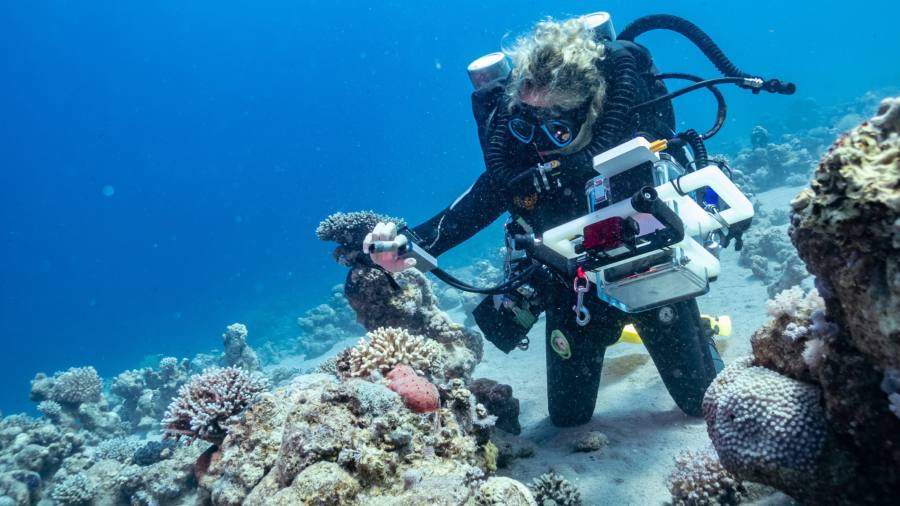
Europe must be prepared to support deep-sea mining if it is to secure metals crucial to making the transition to clean energy, the new Norwegian owner of British industry hopeful UK Seabed Resources has warned.
Hans Olav Hide, chair of Norway’s Loke Marine Minerals, said the controversial practice could help the UK and EU compete in the face of China’s dominance of battery metal supply chains.
“Marine minerals are a very clear response to the geopolitical scene,” Hide said, referring to western governments’ focus on energy security since Russia’s invasion of Ukraine. “People are realising we need to get away from . . . China covering everything.”
“If you build a battery factory you will get funding” from governments, he told the Financial Times. “But if you ask where it will get minerals from, it will be from China or Russia.”
Advocates of deep sea mining say it could play a crucial role in meeting the huge increase in demand for energy transition metals at a time when land-based projects face lengthy waits to gain permits and growing opposition from local communities.
Critics, however, warn the practice poses a serious threat to marine ecosystems and biodiversity, with potentially far-reaching implications.
Global rules to allow deep-sea mining have yet to be approved but companies in various jurisdictions have obtained exploration licences from the UN-backed International Seabed Authority.
The ISA this week debated whether to give the green light to the extraction of manganese, nickel, copper and cobalt from potato-sized nodules up to 5,000 metres beneath the ocean surface.
Hide’s appeal for Europe to secure minerals from the seabed comes days after the EU released the Critical Raw Materials Act aimed at bolstering the bloc’s security of supply.
Demand for commodities such as copper, lithium and rare earths are set to boom because of their use in vital technologies and infrastructure to decarbonise the global economy such as electric cars, renewable power and upgrades to the grid.
The EU has warned for years that the bloc’s reliance on imports of critical raw materials could expose it to supply squeezes from China and threaten its goal to reach net zero emissions by 2050. Most of the world’s cobalt is refined in China, as are all of the rare earths used in magnet production for electric vehicles and wind turbines, it said last month.
Mining companies must obtain the backing of ISA member states in order to obtain exploration licences. The UK, France, India, Russia and China are among countries that have given such backing.
Loke, based in Norway’s oil capital Stavanger, is backed by companies including Norwegian defence contractor Kongsberg Grupper, UK offshore engineer Technip FMC and Norwegian shipping group Wilhelmsen.
It bought UK Seabed Resources from US defence group Lockheed Martin in March for an undisclosed sum. UKSR’s assets include two licences in the Pacific Ocean’s Clarion-Clipperton Zone, the largest known deposit of battery metals.
Loke plans to make an investment decision on mining in the Pacific in 2027 but faces an uphill battle to build a supply chain and client base if it goes ahead.
Commodities group Glencore and Danish shipping company Maersk have both invested in The Metals Company, a Canadian start-up with exploration licences in the CCZ. But big potential consumers including Tesla and BMW have said they will not touch metals mined from the sea because of environmental concerns.
Nick Popovic, co-head of copper and zinc trading at Glencore, told the FT Commodity Summit last month that even when environmental concerns were put aside, economic uncertainties over deep-sea mining made it a difficult investment proposition.
“The problem with deep-sea mining is that it’s so early in the game that without any meaningful examples, I would personally struggle to assess it,” he said.